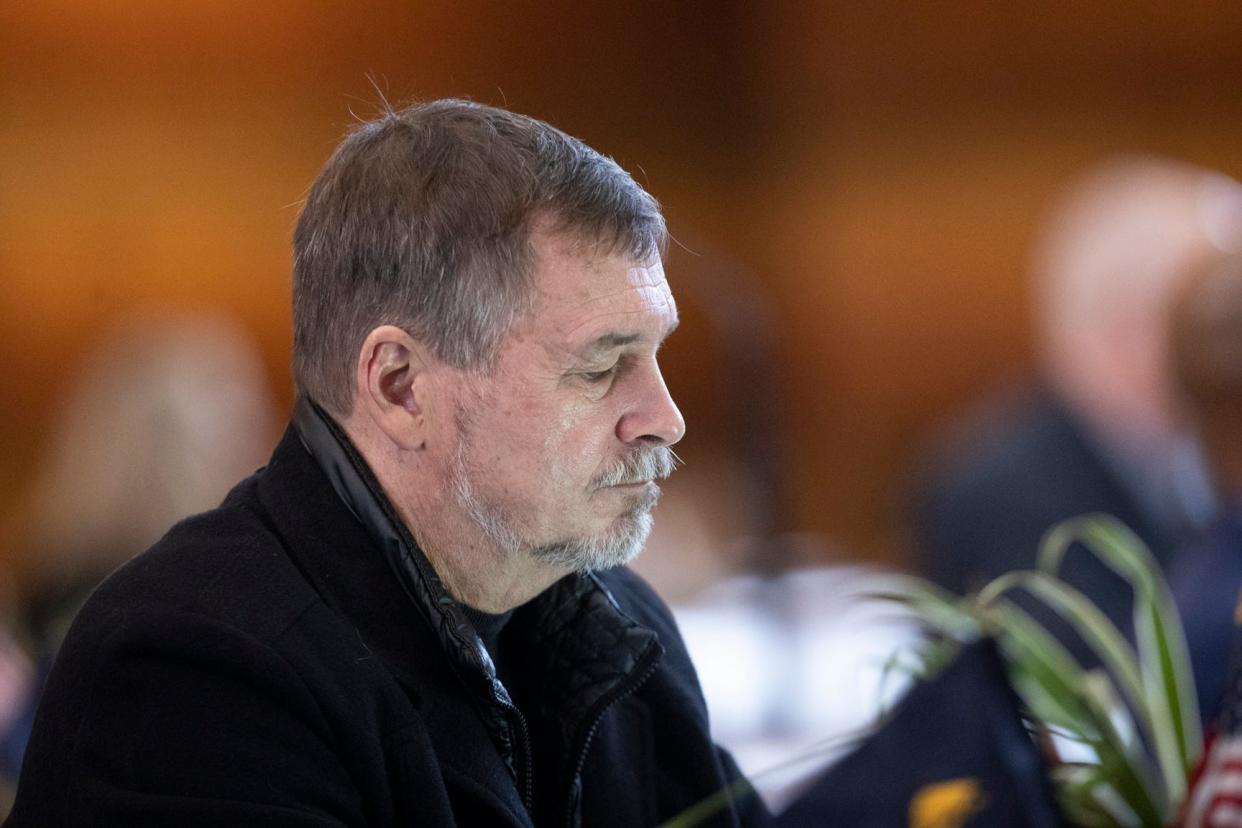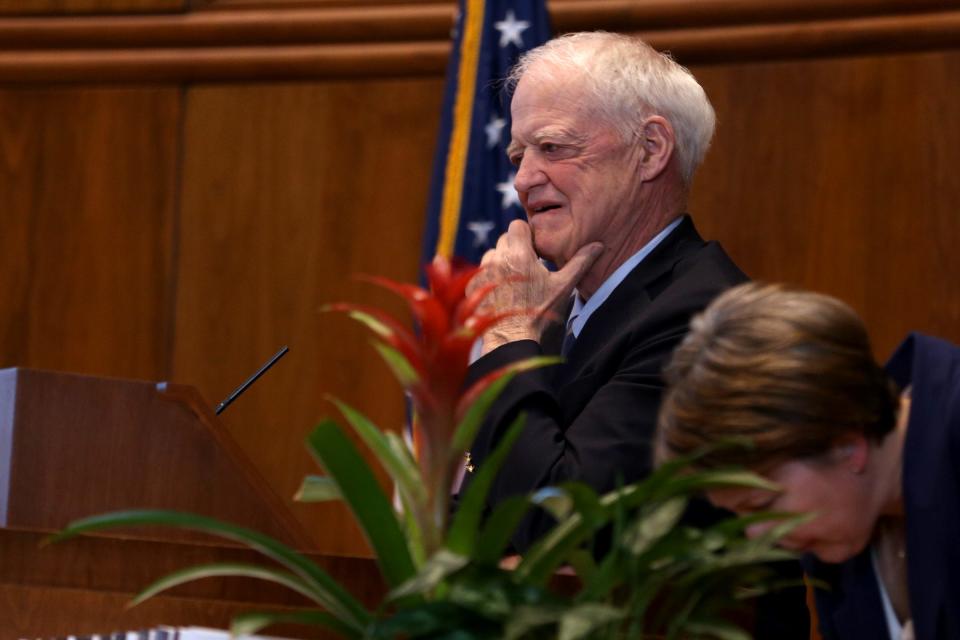2019 restrictions on Oregon state Sen. Brian Boquist violated his free speech, judge rules

- Oops!Something went wrong.Please try again later.
- Oops!Something went wrong.Please try again later.
- Oops!Something went wrong.Please try again later.
Democrats violated the First Amendment rights of state Sen. Brian Boquist, I-Dallas, during the 2019 legislative walkout by implementing a rule that he must give 12-hour notice to the Capitol of his presence, a federal judge ruled Monday.
In 2019, Republican state senators walked out in protest of a climate change bill. Democratic leaders warned they would order state police to arrest missing senators and compel them to return to the state Capitol should they move forward with a walkout.
Boquist — now a registered Independent — made comments to reporters and to then-Senate President Peter Courtney against the decision to send Oregon State Police.

"Send bachelors and come heavily armed. I’m not going to be a political prisoner in the state of Oregon. It’s just that simple," Boquist told Portland TV station KGW.
“I understand the threats from members of the majority that you want to arrest me, you want to put me in jail with the state police, and all that sort of stuff," Boquist said on the Senate floor. "We’re at the 11th hour. If you don’t think these boots are for walking, you’re flat wrong, Mr. President, and if you send the state police to get me, Hell’s coming to visit you personally.”
A Senate conduct committee comprised, in part, of Courtney, Sen. Floyd Prozanski, D-Eugene, and Sen. James Manning, D-Eugene, ordered Boquist to give 12-hour notice of his arrival at the Capitol building.
The restrictions on Boquist were in place for three years before another committee lifted the restrictions in 2022. He claimed retaliation in his lawsuit against the three state senators.
U.S District Judge Michael J. McShane ruled Monday that the restrictions were a "retaliatory act" against Boquist and violated his rights to free speech and association.
Boquist is entitled to damages in the amount of $1 and reasonable attorney fees, according to the opinion and order. He was represented by former Circuit Court Judge Vance Day and attorney Beth Jones.
The Department of Administrative Services' Risk Management will be responsible for the legal fees according to Kristina Edmunson, a spokesperson for the Oregon Department of Justice.
McShane said Boquist's comments were hyperbolic and said in a highly charged political environment, and the reaction from listeners did not indicate that Boquist was conveying a serious threat to harm or assault Courtney or state troopers.
"On the senate floor, no one reacted to Plaintiff's statements, Senator Courtney did not press the panic button under his desk, and OSP did not take any action against Plaintiff," the judge wrote in his decision.
McShane said the 12-hour restriction imposed for three years also violated Boquist's right to freely associate, saying Boquist was unable to freely associate with constituents at the Capitol at any time of day. Boquist testified that he had to meet some constituents at a coffee shop.
“I hope the success of this court case benefits Oregonians who are maligned and put in tough positions for speaking freely, an inherently American right,” Boquist said in an emailed statement. “When someone like me says something that the Democrats in power don’t like, or an enthusiastic moment is used as an opportunity to push their agenda, free speech must be protected.”
State lawyers have 30 days to file an appeal.
Courtney declined to provide comment citing the potential for ongoing litigation.
Prozanski said he would support an appeal and believed the court had "missed the mark."
The 12-hour restriction was a unanimous decision on a motion made by then Sen. Alan Olsen of Canby, one of the two Republicans on the committee, Prozanski said. He wasn't sure, he said, how the court deemed the decision retaliatory if Republicans were a part of the decision. Neither Olsen nor the other Republican, Sen. Tim Knopp of Bend, was part of Boquist's lawsuit.
While he was not personally threatened by Boquists' comments Prozanski looked back on the decision as a compromise to acknowledge the danger others at the Capitol felt, Prozanski said. Committee members had a duty to provide a workplace free of intimidation and fear, he added.
Those same feelings were recognized in McShane's decision. A "small group of staff members" were concerned by Boquist's comments including former Sen. Shemia Fagan who testified that she refused to bring her son to the Capitol after June 19 and former State Police Superintendent Travis Hampton who exhibited "some reluctance to send officers" to Boquist's home, according to McShane.
Other Senators said staff expressed concern and according to testimony, HR Director Jessica Knieling testified that employees expressed a genuine fear of Boquist.
"While this Court does not seek to minimize the real fear that certain members of staff may have felt, in the wider context, the negative reactions of a small number of partisan listeners pales in light of the general consensus that Plaintiff’s statements were political hyperbole," McShane said.
Dianne Lugo covers the Oregon Legislature for the Statesman Journal. Reach her at dlugo@statesmanjournal.com or on Twitter at @diannelugo
This article originally appeared on Salem Statesman Journal: Sen. Brian Boquist's free speech was violated, judge rules

